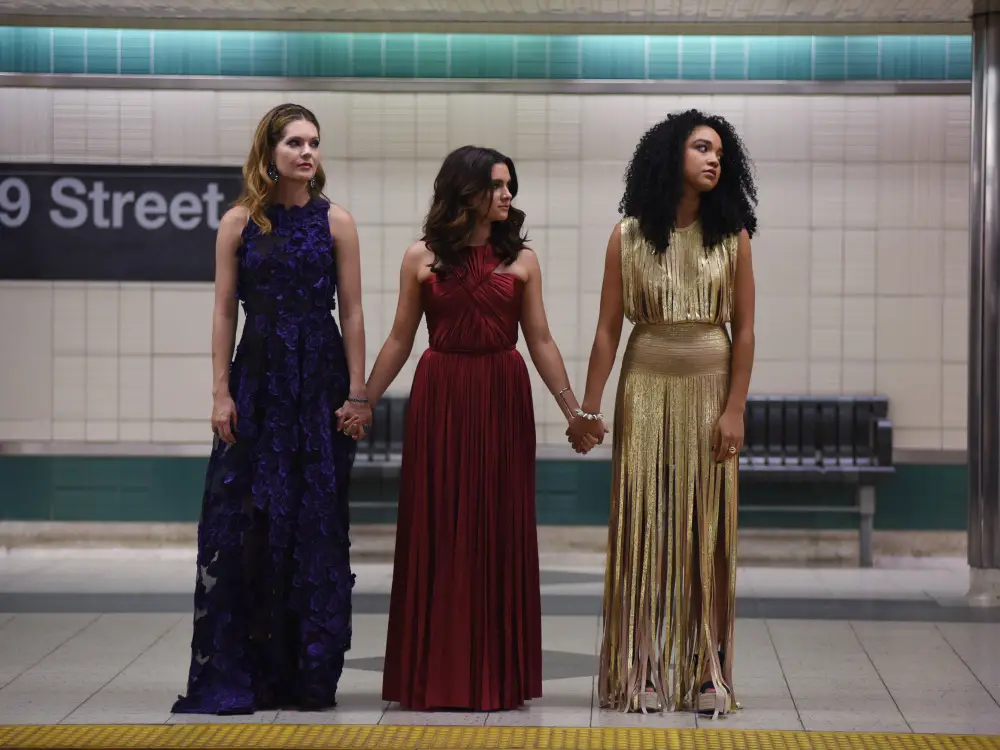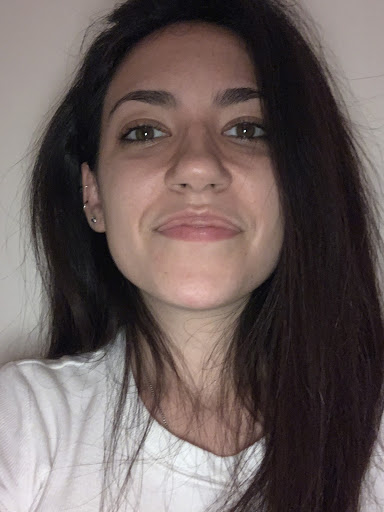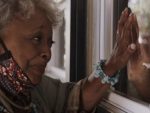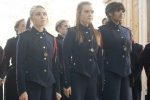“The Bold Type” is inspired by Cosmopolitan’s former editor in chief Joanna Coles, who also happens to produce the show. It tells the story of three women in their 20s living in New York City while navigating common issues in this age range: where they fit in the workplace, its politics, discovering one’s sexuality, women’s health, white privilege, the importance of inclusion and representation, gun control and immigration laws. These are just some of the show’s themes which, as you can see, are very modern, educational and up-to-date. Despite all its positives, the people behind the scenes should also watch their own content and start changing the way they’re running things.
Aisha Dee, who plays one of the main characters, Kat Edison, posted a statement on her Instagram in July to talk about how it took them two seasons to hire even one BIPOC writer; how they haven’t had a single queer Black or Muslim writer, despite there being characters with the corresponding identities; and how it took them three seasons to hire someone who knew how to work with textured hair.
https://www.instagram.com/p/CCrq65djxDf/
In her post, she also congratulates Freeform’s new Black president, Tara Duncan, which is a win for the Black community. And it’s not that “The Bold Type” is doing everything wrong. It’s that they’re not doing everything right. Obviously, the content of the show is very much “woke” and inspiring to its viewers. However, it’s important to practice what you preach. And Dee does an amazing job of reminding the showrunners of that.
Despite these issues that fans hope will be fixed, the show is still incredibly eye-opening and worth the binge, especially now with a filming hiatus due to COVID-19, which means more than enough time to catch up.
The other two characters that complete the central trio are Jane Sloan (Katie Stevens) and Sutton Brady (Meghann Fahy). The three of them work at Scarlet Magazine: Jane as a writer, Sutton as an assistant and Kat as the social media director.
Throughout the seasons we meet other characters who are the perfect companions to the trio. They also have their own storylines that manage to engage viewers and make them root for the characters. In the pilot, we are introduced to Adena El Amin (Nikhol Boosheri). She is a lesbian Muslim artist who has Kat questioning her own sexuality while persuading her to share her art in the magazine.
Richard Hunter (Sam Page) is an older executive who is in a secret relationship with Sutton. This brings in the difficult topic of not only a significant age gap, but also what this could mean for an ambitious young female assistant if their relationship was found out.
And we can’t continue without mentioning Jacqueline Carlyle (Melora Hardin), the editor in chief of Scarlet Magazine. She’s not just the best boss ever, she’s also a badass and a role model to all. But she’s human too and we get to see that throughout “The Bold Type” when she talks about things she’s been through and mistakes she’s made, and will make, in her life.
These are only some of the characters in the show, of course. The other writers, artists, assistants and stylists that work at the magazine are part of the foundation and provide a special vitality to “The Bold Type.”
In the final episode of Season 1, “Carry the Weight,” Jane goes after a story about sexual abuse survivors, focusing on Mia Lawrence, a woman whose rapist was declared innocent. Mia begins the episode with an artistic statement by standing in Central Park holding the scales of Lady Justice, representing the weight of the traumatic experience of going through something like rape. Jane approaches her for an interview and ends up with an article about the #MeToo movement before there ever was one. Surprisingly, by the end, it also involves her boss, Jacqueline Carlyle.
In Season 2, Episode 2, “Rose Colored Glasses,” Kat has to decide whether or not to include her race in her work bio. It’s a discussion about when it’s a good thing to share our labels and to let them define us. It’s about the way biracial people struggle when having to choose between the two races that make them, them. The best part of the episode is when Kat forces herself to sit down with her parents, who are different races, and have a conversation about why they don’t talk about labels. It’s particularly emotional when her mother explains that she just wanted to feel like her mother and not her “white mother.”
In Season 3, Episode 3, “Stroke of Genius,” we get to see the other side of the #MeToo movement. Now, before you roll your eyes, let me explain. Alex, another Scarlet writer and good friend to the trio, finds himself as the inspiration for a short story published in the New Yorker by a friend he went to college with. That friend narrates a night she spent with a man where she felt pressure to have sex. Alex later finds out he is the person that made her feel pressured.
The episode talks about how men need to understand that a woman doesn’t always feel like she is in a safe position to consent. Alex needs to decide whether to become an ally, support his friend’s success and lose his readers’ trust in the process, or ignore the story’s popularity until it goes away and still keep his credibility.
And in Season 4, Episode 13, “Lost,” Sutton, happily married, finds out she’s pregnant. During the first doctor’s visit, they get the news that they’ve lost the baby. With the grief of miscarriage, Sutton also realizes that a part of her feels relief; she’s faced with the difficult challenge of sitting down with her husband and telling him she doesn’t want kids. Meanwhile, Jane deals with dating after her preventative mastectomy surgery and the battle to accept her new body.
These are only some of the topics dealt with in “The Bold Type.” It is, again, completely worth the watch. It’s important to self-educate and check in with yourself about social issues; this show is one of the many ways to do that. Let’s just hope the showrunners are using this time to rewatch it too and fix the way they’re doing things behind the scenes.

















